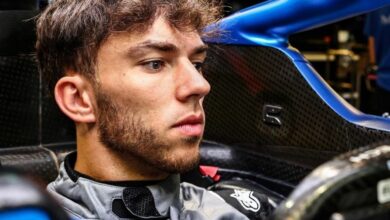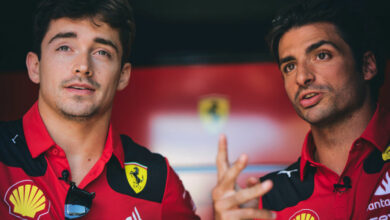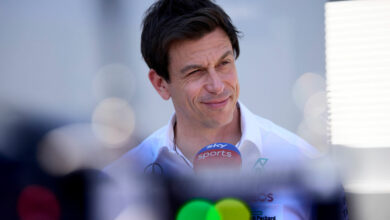Alpine’s Shifting Dynamics and Unmet Expectations: Insights from Szafnauer
Unmet Aspirations and Parent Company Influence: A Closer Look at Alpine's Leadership Shift
The landscape of Alpine’s senior leadership has experienced a seismic shift, accompanied by the candid revelations of former team principal Otmar Szafnauer. As Bruno Famin assumes the role of Vice President of Alpine Motorsports and Philippe Krief takes the reins as CEO, the Belgian Grand Prix brought forth unexpected departures—the exit of Otmar Szafnauer and Sporting Director Alan Permane. Szafnauer’s perspective sheds light on the intricate challenges Alpine navigated, exposing an intriguing narrative of aspirations and control.
In an exclusive conversation with Chris Medland for The Racer.com, Szafnauer unveils a telling account of his journey within Alpine. Central to his narrative is the discernible influence of Renault, the parent company, in the team’s affairs. Szafnauer reflects: “The level of control exerted by Renault was unlike anything I’ve encountered before.”
“The parent company wanted to have a lot of control in a lot of areas of the racing team.
“More than I’ve ever seen before. You know, the commercial area, the marketing area, HR, finance, communication, all that stuff reported not to me, but around me, to somebody else in the bigger organization, and they all act like a navy, and we have to be pirates in order to win.
“So if you say all else equal – the cars [are] equal, the drivers are equal, the powertrain’s equal, your knowledge of the tires is… but what isn’t equal is the fact that a Mercedes or a Red Bull have HR, finance – especially finance now because of the cost cap – all the commercial aspects and communication reporting to Christian [Horner] and we don’t, guess who’s going win? Red Bull.
“And when you look at it that way, it’s really, really easy to understand. If you don’t look at it that way, then you can convince yourself that, ‘Oh yeah, that’s OK. It’s OK that HR doesn’t report through the team principal.
“It’s not OK. It’s not OK at all because if you’re going to hire somebody and you’ve got to get a contract out within a day because that’s what we do in Formula 1, you can’t take two weeks. If it takes you two weeks, maybe that special hire went somewhere else. You’ve got to be pirates.”
Navigating the intricate dynamics of Alpine proved to be a formidable challenge, one that Szafnauer had to deftly navigate. He delves into the intricacies of the team’s transformation and the dynamics that shaped his tenure. The growing involvement of the parent company in major decisions left Szafnauer feeling somewhat disempowered—a reality that seemed at odds with his role as team principal.
One notable point of concern Szafnauer raises pertains to the pace of decision-making within the organization. The fast-paced nature of Formula One requires swift and agile responses to capitalize on opportunities. However, Szafnauer highlights a perceptible delay in making crucial decisions—a circumstance that is often incongruent with the rapid tempo of the motorsport business.
“I think the senior management at Renault, the CEO, Luca de Meo, wants, as everyone does in Formula 1, success instantly and unfortunately, that’s not how it works in Formula 1.
“So I pointed out to him that it takes time and the process of doing it, what’s required, and having raced for 34 years – and 26 years of it in Formula 1 – I think I speak with a degree of experience when I say ‘this is what it takes to turn a team around’ and they wanted to do it faster than is possible.
“I couldn’t agree to an unrealistic timeline because if you do that, it’s only a matter of time and everyone gets frustrated, so I laid out a very realistic and possible plan and I think they wanted to shortcut that plan with somebody else.”
Interestingly, Szafnauer’s revelations extend to the expectations set by Renault’s CEO, Luca de Meo. The urgency for immediate competitiveness, Szafnauer implies, appeared to be a prominent mandate from the top echelons. While Szafnauer himself had advocated for a measured, long-term strategy, de Meo’s preference for instantaneous results presented an interesting contrast—a clash between immediate desires and a pragmatic, sustainable roadmap.
As the dust settles on the shifts within Alpine, the team’s journey forward remains intriguing. The balance between rapid progression and a methodical approach is one that Szafnauer’s insights shine a light upon. Amidst Renault’s pursuit of immediate excellence and Alpine’s striving for sustainable growth, the future trajectory of the team stands at an intriguing crossroads.


